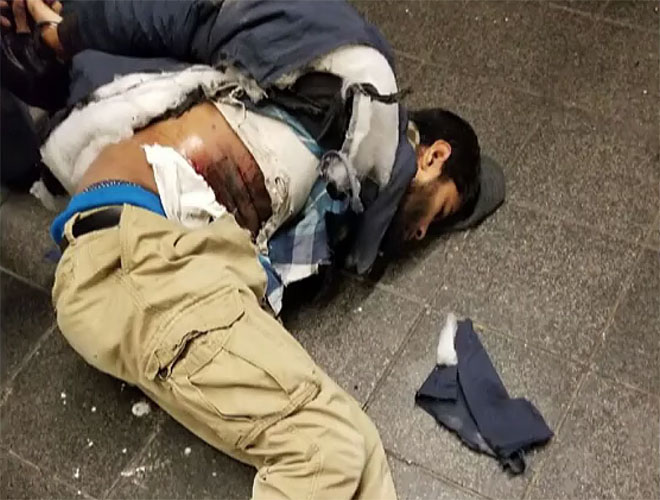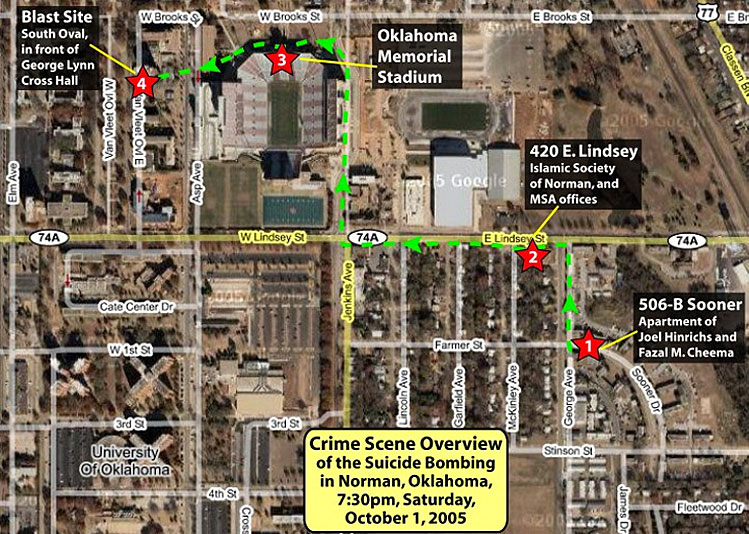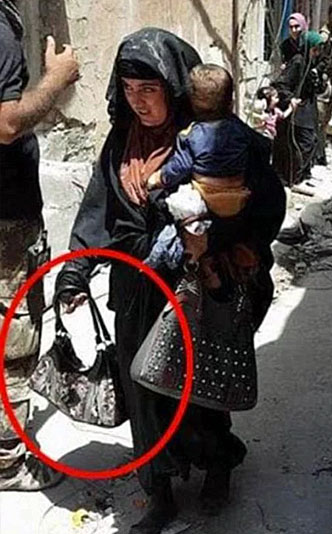
Guest Editorial by Stanley I. White, IACSP, ATO
The date of December 11, 2017 and March 13, 1881 have some common characteristics.
The commonalities involve explosives, violence, deliberative actions and the fact they are the first of their kind.
These commonalities are easily over looked as time passes.
The specifics of these two dates are summarized below:
March 13, 1881
On March 13, 1881, Ignaty Grinevitsky, a member of the People’s Will left wing terrorist group ran toward Tsar Alexander II outside the Winter Palace in St Petersburg, Russia and dropped an explosive at the feet of Alexander.
(The Assassination of Alexander II of Russia. Courtesy of WorldsAssassinations and YouTube. Posted on Nov 17, 2008)
The explosion killed both Ignaty and Alexender.
This marked the first documented suicide bombing in modern history.
December 11 , 2017
On December 11, 2017, Akayed Ullah, a Bangladesh native and US resident entered the crowded pedestrian tunnel that connects the Port Authority Bus Terminal and the Times Square subway station in Manhattan.
There he detonated an explosive device attached to his body underneath his clothing.
The device partially detonated causing injuries to Akayed and several nearby pedestrians.
(Akayed Ullah, 27, who is accused of detonating an explosive in the New York City subway system, was not on the government’s terrorism radar, authorities said. Courtesy of ABC News and YouTube. Posted on Dec 12, 2017)
Over 130 years separate these two events and they are both the first of their kind.
Ignaty’s attacked resulted in injuries and the death of Alexander II as well as his own.
As noted, this also became the first documented suicide attack in recorded history.

Akayed’s attack was not the first suicide bombing attack in the US.
The September 11th hijackers in 2001 who crashed two planes into the World Trade Center Towers, a third plane into the Pentagon and a fourth plane into a field in Pennsylvania are credited with the first attack of this nature on US soil.
Akayed is the first suicide bomber to walk into a crowd of pedestrians in a US city and detonate himself.
Although there were only minor injuries and Akayed failed to martyer himself, this assault is a game changer for US security due to the international exposure the incident garnered.
The US media made a brief note of the incident and quickly moved on to other trending items.

However, ISIS took note and on December 13, 2017 released a series of holiday posters on social media with one reading “ISIS in Manhattan” and a second depicting a suicide belt against a Times Square backdrop.
The Akayed attack drew attention to the vunerabilities of our open society.
The response to this incident confirms our society has been and continues to become numb to terrorist acts on US soil.
Especially due to the fact Akayed’s attack only resulted in minor injuries and a small amount of property damage.
Prior to Akayed’s attack several other suicide bombing attacks were attempted, thwarted and quickly forgotten as new threats to security arose.
Several attempted attacks are summarized below:
December 22, 2001
On December 22, 2001, Richard Reid also known as the “Shoe Bomber,” attempted to detonate explosives housed in his sneakers aboard American Airlines Flight 63 from Paris to Miami.
His plot was thwarted when he was subdued by fellow passengers on the flight.
(Shoebomber Richard Reid December 22, 2001 Boston. Courtesy of 911InvestigationVids and YouTube. Posted on Apr 13, 2014)
October 1, 2005

On October 1, 2005, Joel Henry Hinrichs, an University of Oklahoma student and a recent convert to Islam, attempted to enter a university football game with an explosive device in his backpack.
He was denied entrance after refusing to have his backpack searched.
Hinrichs left the stadium grounds and detonated the explosive device on a nearby park bench.
December 25, 2009
On December 25, 2009, Umar Farouk Abdulmutallab, also known as the “Underwear Bomber”,attempted to detonate explosives hidden in his underwear while aboard Northwest Airlines Flight 253 from Amsterdam to Detroit.
His plot was thwarted when crew members and a passenger subdued him.
(Umar Farouk Abdulmutallab sentenced for plot to bomb airliner on Christmas Day 2009. U.S. showed evidence demonstrating Umar Farouk Abdulmutallab’s explosives. Courtesy of CNN and YouTube. Posted on Feb 16, 2012)
Just as the above attempts have been forgotten by a majority of the society, the Akayed attack should not be overlooked as a near miss.
The enemies of our society are taking note as we move toward 2018 and beyond.
Unlike in 2001, 2005 and 2009 now more than ever extremist social media is recruiting, radicalizing and training homegrown terrorist without them ever leaving the US.
Attacks similar to Akayed’s have been common in the Middle East, Europe, Russia, and Asia (note: what happens overseas usually makes its way to the US).

The device used in the Port Authority/Times Square Attack was constructed a pipe, Christmas tree lights, a 9 volt battery, sugar, match heads and screws (note: these instructions can easily be found on the internet).
Reid, Hinrich, Umar and Akayed were not James Bond or MacGyver and their attempts could have been more destructive yet they still garnered international media attention.
A far greater threat than the four previously mentioned individuals is a highly intelligent, driven attacker who can remain under the radar of law enforcement and obtain critical target information then strike without warning.
A suicide bomber whose device is not remotely detonated and requires the bomber to detonate himself or herself is a very dangerous adversary.
They can adjust plans as needed and wait for the right time to attack or even abort their mission and return at a more opportune time.
This makes the burden of security even greater.
Everyone from the average man and woman on the street to the highly trained anti-terrorism professional must make it their duty to remain alert and vigilant as it pertains to suicide bombers and other terrorist threats.
Below are some characteristics of a standard suicide bomber:

- The bomber can be either male or female
- Individuals wearing bulky clothing not consistent with the weather (note: winter time and cold weather are the hardest time to detect bombers concealing explosives)
- Bomber may carry explosives in a number of duffle bags slung over shoulders or carried by hand
- Individuals with facial burns or with discolored skin due to a mixing/experimenting with explosive materials
- Individuals may have missing fingers or recent injuries due to failed explosive testing
- Individuals may have a chemical odor or burning smell on clothing
- Individuals may be observed adjusting clothing
- Bomber may exhibit a strange awkward stride/walk due to the weight of explosives carried
- Wires may be seen protruding from sleeves or from under clothing
- Individuals may test security parameters, ask probing uncommon questions
- Attempt to blend in with strangers (ie. a group of foreign tourists) to get close to their target
- Refuse to make eye contact with security elements onsite or near their selected target
- Nervously scan the areas around them
- Profuse sweating
- May be chanting or praying to themselves out loud while moving toward their target
- May look chemically altered or in a trace and unresponsive to basic commands/instructions
The attacker will always have the advantage when it comes to why, how and when he or she will attack a selected target.
However, continued knowledge of the existing threat environment, current operating methods and characteristics of the subject attacker can make a difference in the fight against suicide bombers and other terrorists seeking to destroy our way of life.
Everyone from law enforcement to the average man and women must remain vigilant in this effort.
About the Author:
Stanley I. White is currently the CI Advisor for the IACSP as well as a defensive tactics instructor who has trained personnel from numerous local, state and federal law enforcement agencies.
He is a certified Anti-Terrorism Officer, holds an active membership with the AFIO and is listed as a general services DoD contractor.
He is also an internationally published author on the topics of personal security and counter terrorism. Mr White can be reached for comment at swhite@atix.riss.net.
Sources:
Iain Overton and Henry Dodd, ”A Short History of Suicide Bombing”, August 23, 2013, AVOA, https://aoav.org.uk/2013/a short history of suicide bombing
“Attacker Tries to Carry Out First Fatal Suicide Bombing in US”, December 14, 2017, Watchline, www.watchline@fdny.nyc.gov
Robert G. Nixon, BA, EMT-P and Charles E. Stewart, MD “Recognizing Imminent Danger: Characteristics of a Suicide Bomber”, EMSWorld, https//www.emsworld.com/article/10324205
Learn More…
ISIS Will Remain a Threat in 2018, Experts Warn (Learn More, Videos)
















